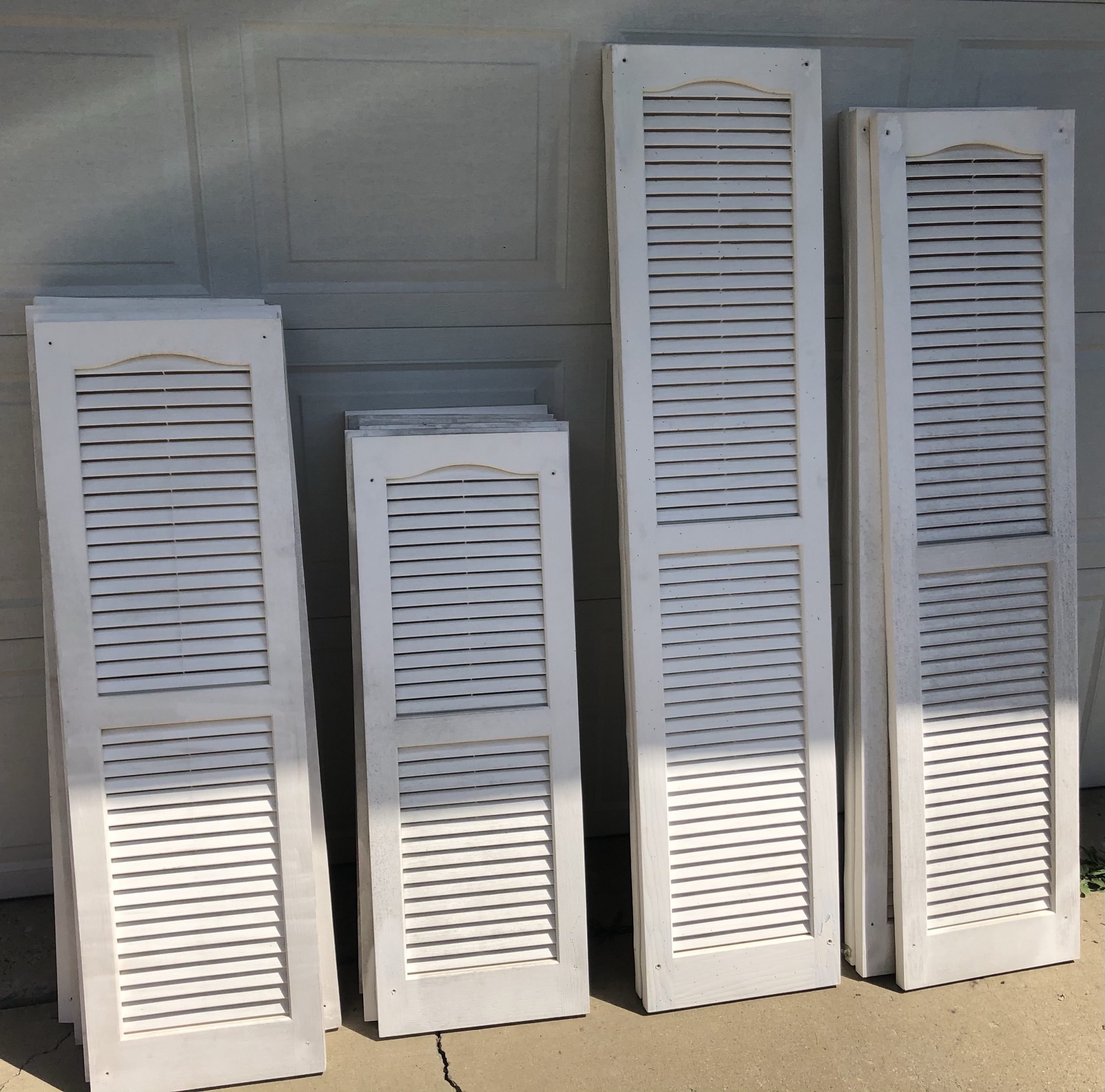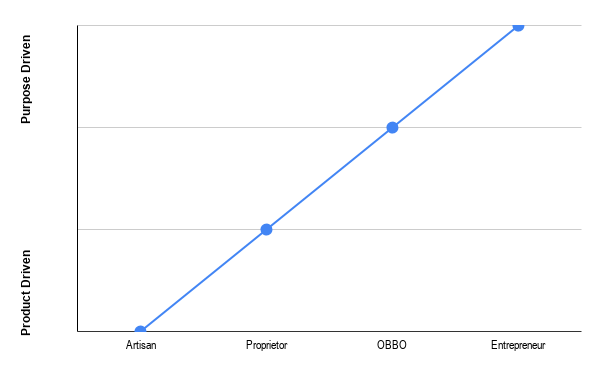Know your “type”.

There are many different types of small business owners, and they can be grouped & categorized in a variety of methods, everything from size, geography, industry, internal structure, etc. One key distinction my wife and I discuss quite often is the difference between Artisans and Entrepreneurs. While I coach and train organizational leaders, she works with a variety of vendors in the events industry (not only does she collaborate with photographers, dj’s, videographers, florists, and others as an event coordinator, but she also operates a membership-based vendor co-op.)
Taking these one-at-a-time, I want to begin with “Entrepreneurs”. Typically, these are defined as simply those who start or organize a business and assume significant financial risk to do so. In my mind, however, an Entrepreneur is more than that. Entrepreneurism encompasses innovation, planning, passion, purpose, and vision. Those traits set the Entrepreneur apart from an OBBO (Opportunity Based Business Owner), a Proprietor, and an Artisan.
This is not to say that being an OBBO is “less than” being an Entrepreneur. There are different objectives. An OBBO might be passionate about what they do, but their business is much more oriented toward profit or financial freedom (as an end to itself or as a means to another end). Consider a restaurant franchise, for example. They are very structured, so it would be difficult for a franchisee to be “innovative” or have a unique purpose or vision apart from that of the franchisor. Another example might be an owner of rental properties. While it is possible to have vision and innovation in this industry, most property owners manage their properties, collect rent, plan for growth, and/or plan an exit strategy. Beyond that, it’s pretty mundane. (We do own some rental properties, so I’m speaking from some experience here.) Absentee owners and those seeking residual income would also fall into this category.
Then there are Proprietors who are usually the “mom & pop” type of business. Think brick & mortar (usually), typically one location (maybe two or three), content to operate their business and retire from it eventually. These are often family businesses that have been passed down from parents or grandparents. Many of your local restaurants & retail shops fall into this category. This is “main street” American small business.
The final category is Artisans, and this category usually includes Etsy sellers, farmers market vendors, side hustlers, and chefs who open a restaurant (among others). These are people who are passionate or skilled and decide to turn their passion/hobby/talent into a business.
Again, this is not about one being better than the other; rather, it’s about understanding where you identify yourself so that you can get the best support for your business. Each of these has very different needs. An Artisan will likely need help with business formation & structure, bookkeeping, management, and other business “basics”. There is a huge transition from hobby to business or chef to restaurateur. While these individuals may have significant abilities when it comes to their craft, running a business is completely different skillset.
The Proprietor, however, will likely need assistance with things like keeping current with industry trends, technology, human resource law & practices, marketing (attracting new and retaining existing customers), and ensuring that they are poised for continued success.
For the Opportunity Based Business Owner, key support areas will likely be focused more on financial tracking/reporting, maximizing profitability, tax strategy, and exit strategy.
Entrepreneurs, on the other hand, have very similar and very different requirements. Not only do they sometimes require guidance for some of the basics (depending on their experience and current stage of business), but with growth comes all of the other aforementioned skill development. In addition, an Entrepreneur will frequently need some mentoring regarding Organizational Navigation methodologies which bring clarity to their purpose and vision. That is why I work primarily with Entrepreneurs. Their needs are diverse, but clarity is the key. By getting clear on purpose and vision first, an Entrepreneur can focus their time, efforts, and mental energy on the right things at the right time.

The lines between Entrepreneurs, OBBO’s, Proprietors, and Artisans are blurry, but the concept is useful. As a rule of thumb variation along this spectrum is directly proportional to the primary driver for those business owners. At the Artisan end of the spectrum, the primary driver is usually the product or service; at the Entrepreneur end, the primary driver is more purpose oriented.
Why does any of this matter? Because everyone needs a coach. Everyone will benefit from mentorship. Every serious, professional athelete and performer seeks coaching, and professional business owners should be no different. Knowing your needs and your “driver” will help determine what kind of coach you need. Artisans should probably start with a CPA. A good accountant can provide some of the basic frameworks a new business owner will need and also refer them to other professionals when the time is right.
A Proprietor will likely need marketing expertise or even an HR consultant/professional, while a Opportunity Based Business Owner might need a tax specialist or a CPA geared toward their specific industry or situation. Entrepreneurs are a little different. Being highly purpose-driven means that they first and foremost need strategic clarity. This focus on Organizational Navigation demands a system designed for concise, progressive, functional, manageable, and easy-to-follow strategic planning + execution. Something like the iNautilus™ methodology I coach and train with my clients.
Obviously, these are generalizations. Every business owner is operating a unique business and will have somewhat individualized coaching objectives. As a guide, however, understanding the relationship between business category and coach will yield the best possible outcomes. Know who you are, so you know who you need.